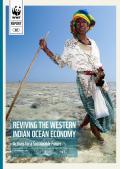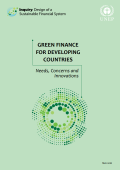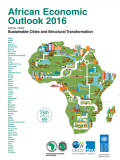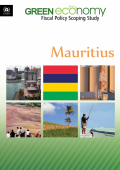

Green finance is a strategy for financial sector and broader sustainable development that is relevant around the world. But the context differs considerably for different countries. Developing countries, notably those with underdeveloped financial systems, face particular challenges in financing national development priorities.
Broadly, concern and action to align financing to sustainable development is concentrated in three areas:

The African Economic Outlook (AEO) 2016 presents the current state of economic and social development in Africa and projects the outlook for the coming two years. The AEO is a product of collaborative work by three international partners: the African Development Bank, the OECD Development Centre and the United Nations Development Programme.
The AEO 2016 shows that the continent is performing well in regard to economic, social and governance issues and has encouraging prospects for the near future. With its special theme on sustainable cities and structural transformation, this edition looks closely at Africa’s distinctive pathways towards urbanisation and at how this is increasingly shifting economic resources towards more productive activities.

Green economy (GE) was recognized at the UN Conference on Sustainable Development (Rio+20) in 2012 as an essential tool in achieving sustainable development. Effective GE policymaking requires indicators that capture the nexus of economic, social and environment issues in order to provide the evidence-based information necessary for effective decision-making. UNEP has developed a Green Economy Indicators Framework that weaves various indicators into the Integrated Policymaking process and is intended to assist policymaking at the country level. This report synthesises three studies on the role of indicators in assisting national green economy policymaking that were conducted in Ghana, Mauritius and Uruguay. Based on these country experiences, the report discusses key findings and challenges.
